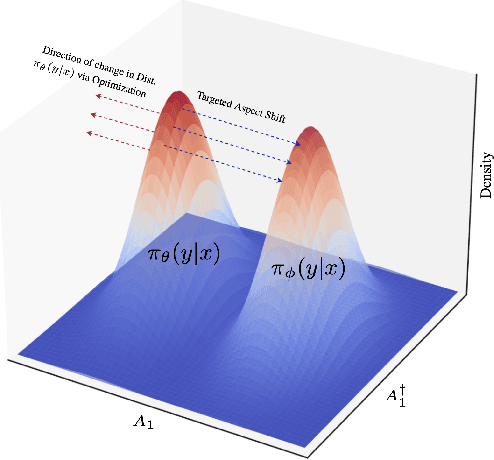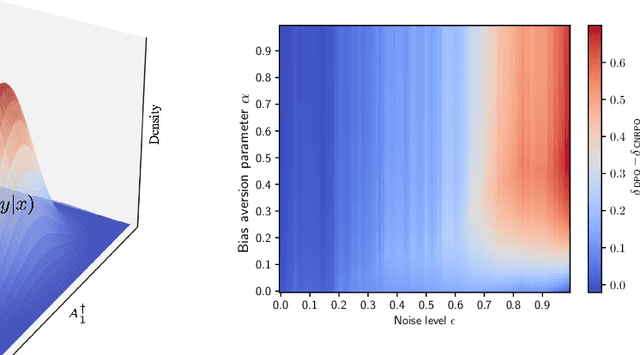Seyed Shahabeddin Mousavi
The Gray Area: Characterizing Moderator Disagreement on Reddit
Jan 07, 2026Abstract:Volunteer moderators play a crucial role in sustaining online dialogue, but they often disagree about what should or should not be allowed. In this paper, we study the complexity of content moderation with a focus on disagreements between moderators, which we term the ``gray area'' of moderation. Leveraging 5 years and 4.3 million moderation log entries from 24 subreddits of different topics and sizes, we characterize how gray area, or disputed cases, differ from undisputed cases. We show that one-in-seven moderation cases are disputed among moderators, often addressing transgressions where users' intent is not directly legible, such as in trolling and brigading, as well as tensions around community governance. This is concerning, as almost half of all gray area cases involved automated moderation decisions. Through information-theoretic evaluations, we demonstrate that gray area cases are inherently harder to adjudicate than undisputed cases and show that state-of-the-art language models struggle to adjudicate them. We highlight the key role of expert human moderators in overseeing the moderation process and provide insights about the challenges of current moderation processes and tools.
LORE: Lagrangian-Optimized Robust Embeddings for Visual Encoders
May 24, 2025Abstract:Visual encoders have become fundamental components in modern computer vision pipelines. However, ensuring robustness against adversarial perturbations remains a critical challenge. Recent efforts have explored both supervised and unsupervised adversarial fine-tuning strategies. We identify two key limitations in these approaches: (i) they often suffer from instability, especially during the early stages of fine-tuning, resulting in suboptimal convergence and degraded performance on clean data, and (ii) they exhibit a suboptimal trade-off between robustness and clean data accuracy, hindering the simultaneous optimization of both objectives. To overcome these challenges, we propose Lagrangian-Optimized Robust Embeddings (LORE), a novel unsupervised adversarial fine-tuning framework. LORE utilizes constrained optimization, which offers a principled approach to balancing competing goals, such as improving robustness while preserving nominal performance. By enforcing embedding-space proximity constraints, LORE effectively maintains clean data performance throughout adversarial fine-tuning. Extensive experiments show that LORE significantly improves zero-shot adversarial robustness with minimal degradation in clean data accuracy. Furthermore, we demonstrate the effectiveness of the adversarially fine-tuned CLIP image encoder in out-of-distribution generalization and enhancing the interpretability of image embeddings.
One Goal, Many Challenges: Robust Preference Optimization Amid Content-Aware and Multi-Source Noise
Mar 16, 2025



Abstract:Large Language Models (LLMs) have made significant strides in generating human-like responses, largely due to preference alignment techniques. However, these methods often assume unbiased human feedback, which is rarely the case in real-world scenarios. This paper introduces Content-Aware Noise-Resilient Preference Optimization (CNRPO), a novel framework that addresses multiple sources of content-dependent noise in preference learning. CNRPO employs a multi-objective optimization approach to separate true preferences from content-aware noises, effectively mitigating their impact. We leverage backdoor attack mechanisms to efficiently learn and control various noise sources within a single model. Theoretical analysis and extensive experiments on different synthetic noisy datasets demonstrate that CNRPO significantly improves alignment with primary human preferences while controlling for secondary noises and biases, such as response length and harmfulness.
Towards AI-driven Integrative Emissions Monitoring & Management for Nature-Based Climate Solutions
Dec 17, 2023Abstract:AI has been proposed as an important tool to support several efforts related to nature-based climate solutions such as the detection of wildfires that affect forests and vegetation-based offsets. While this and other use-cases provide important demonstrative value of the power of AI in climate change mitigation, such efforts have typically been undertaken in silos, without awareness of the integrative nature of real-world climate policy-making. In this paper, we propose a novel overarching framework for AI-aided integrated and comprehensive decision support for various aspects of nature-based climate decision-making. Focusing on vegetation-based solutions such as forests, we demonstrate how different AI-aided decision support models such as AI-aided wildfire detection, AI-aided vegetation carbon stock assessment, reversal risk mitigation, and disaster response planning can be integrated into a comprehensive framework. Rather than being disparate elements, we posit that the exchange of data and analytical results across elements of the framework, and careful mitigation of uncertainty propagation will provide tremendous value relative to the status-quo for real-world climate policy-making.
AI-driven E-Liability Knowledge Graphs: A Comprehensive Framework for Supply Chain Carbon Accounting and Emissions Liability Management
Nov 26, 2023
Abstract:While carbon accounting plays a fundamental role in our fight against climate change, it is not without its challenges. We begin the paper with a critique of the conventional carbon accounting practices, after which we proceed to introduce the E-liability carbon accounting methodology and Emissions Liability Management (ELM) originally proposed by Kaplan and Ramanna, highlighting their strengths. Recognizing the immense value of this novel approach for real-world carbon accounting improvement, we introduce a novel data-driven integrative framework that leverages AI and computation - the E-Liability Knowledge Graph framework - to achieve real-world implementation of the E-liability carbon accounting methodology. In addition to providing a path-to-implementation, our proposed framework brings clarity to the complex environmental interactions within supply chains, thus enabling better informed and more responsible decision-making. We analyze the implementation aspects of this framework and conclude with a discourse on the role of this AI-aided knowledge graph in ensuring the transparency and decarbonization of global supply chains.
Leveraging AI-derived Data for Carbon Accounting: Information Extraction from Alternative Sources
Nov 26, 2023


Abstract:Carbon accounting is a fundamental building block in our global path to emissions reduction and decarbonization, yet many challenges exist in achieving reliable and trusted carbon accounting measures. We motivate that carbon accounting not only needs to be more data-driven, but also more methodologically sound. We discuss the need for alternative, more diverse data sources that can play a significant role on our path to trusted carbon accounting procedures and elaborate on not only why, but how Artificial Intelligence (AI) in general and Natural Language Processing (NLP) in particular can unlock reasonable access to a treasure trove of alternative data sets in light of the recent advances in the field that better enable the utilization of unstructured data in this process. We present a case study of the recent developments on real-world data via an NLP-powered analysis using OpenAI's GPT API on financial and shipping data. We conclude the paper with a discussion on how these methods and approaches can be integrated into a broader framework for AI-enabled integrative carbon accounting.
 Add to Chrome
Add to Chrome Add to Firefox
Add to Firefox Add to Edge
Add to Edge